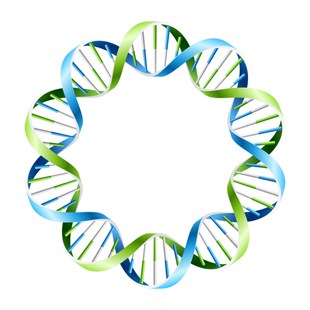Are You Genetically At Risk for Gout?
Gout is caused by an increase in blood uric acid levels leading to deposits of urate crystals in the joints. These crystals trigger inflammation creating pain and eventually leading to arthritis and joint disability if left untreated.
Gout typically affects men at an initial age of 40 to 50 years while it is seen most commonly in postmenopausal women. Gout is managed by altering lifestyle factors, though it can be hard to identify the exact triggers. Genetic testing for increased risk of gout may ultimately provide additional information allowing for better management of personal uric acid levels.
Genetic Mutations and Gout
Recent research has demonstrated that some individuals may have an increased risk of developing gout based on their genetic profile. Multiple genetic changes in DNA encoding for two proteins, ABCG2 and SLC2A9, have been significantly associated with a higher risk of gout. How high? Well, that’s still under debate. What is clear is that having a combination of these genetic changes resulted in a large effect on uric acid levels and gout prevalence.
Both ABCG2 and SLC2A9 are urate transporters meaning these proteins are necessary for the process of transporting urate out of the body. It is likely that changes to these proteins could affect an individual’s ability to process large amounts of diet derived uric acid.
Who should be tested for Gout Associated Genetic Mutations?
Currently, there are no standard guidelines or suggestions for monitoring genetic changes associated with increased gout risk in the general public. Given that serum uric acid levels effectively predict gout risk, there is no established need to test for genetic risk factors. However, individuals with the following conditions who are concerned about their risk of gout should discuss their personal history with their physician to see if genetic testing is suitable for them:
- Do you have a relative who was diagnosed with gout and do you practice lifestyle behaviors that are typically associated with gout such as a diet rich in fat and protein, excessive alcohol consumption, and overall obesity?
- Do you require the use of medications known to increase uric acid levels such as some hypertension drugs or low-dose aspirin regimes?
Furthermore, individuals who are interested in management of their uric acid levels may find genetic testing necessary.
How Can You Take Action if You Have Gout Associated Genetic Mutations?
If you are already predisposed to gout through genetic changes, modifying lifestyle habits that are potential causes for gout may aid in the prevention or management of this disease. This includes avoiding food containing excessive fat and protein, limiting alcohol consumption, and maintaining a healthy weight. Monitoring your total fluid intake to ensure proper hydration is also suggested for people who may be susceptible to increased uric acid levels.






